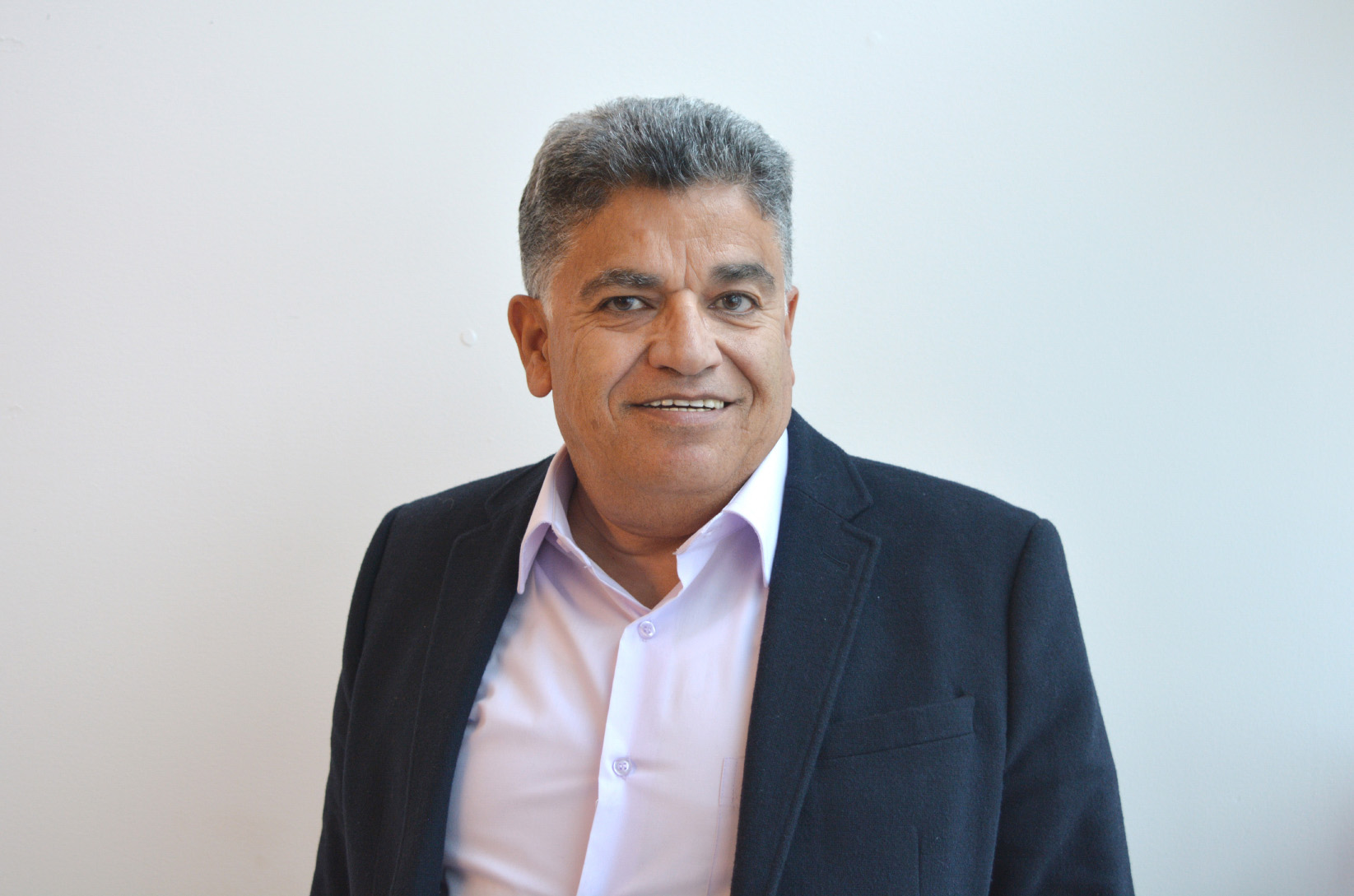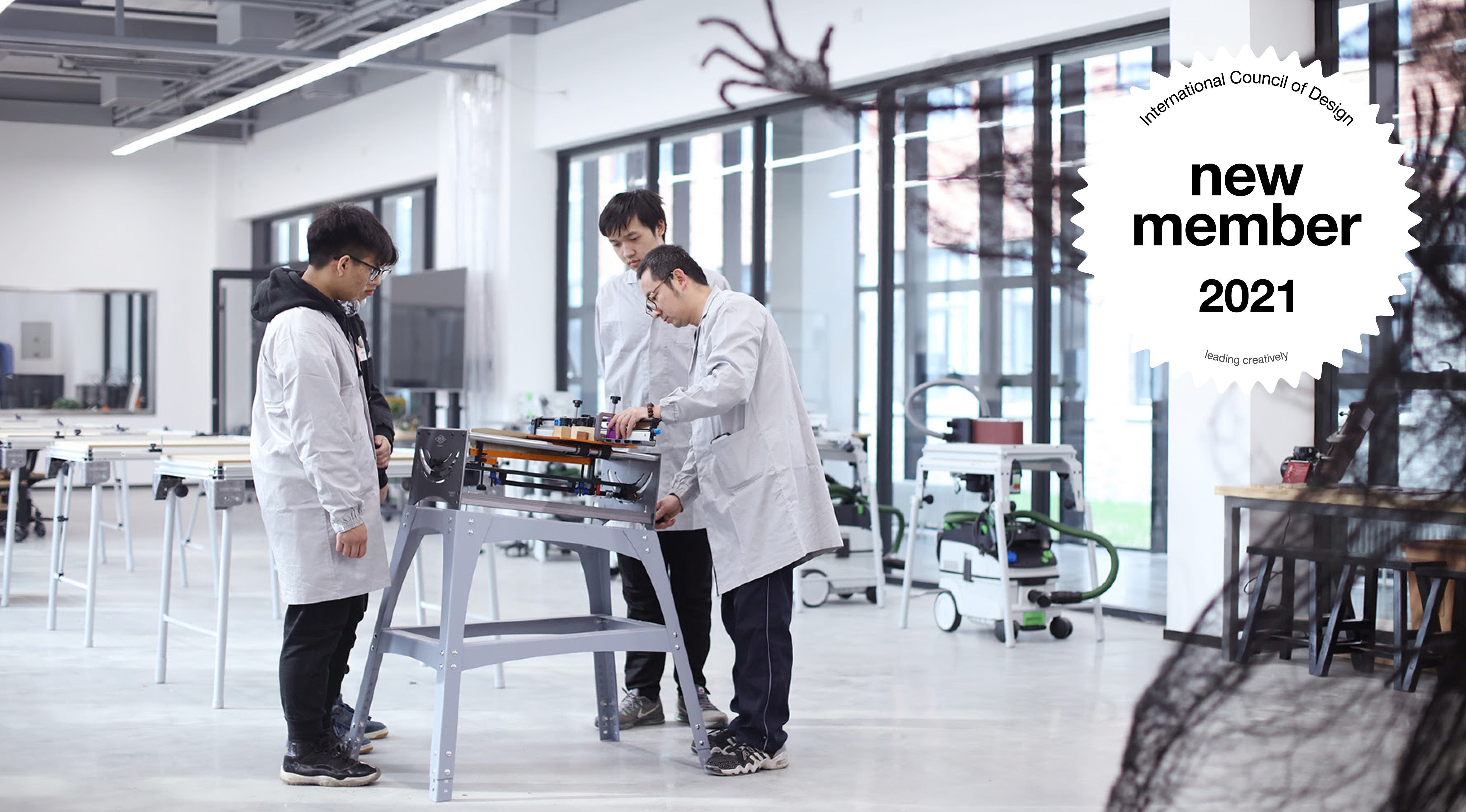ICOGRADA CALLS FOR CLOSER RELATIONS WITH ICSID AND IFI

19.07.2001 News
Brussels (Belgium) -The Icograda Board, recognizing the need to conduct a serious investigation of the potential for closer institutional collaboration between the three international design organisations, Icograda, Icsid and Ifi, has been discussing the issue at recent board meetings and at Icograda Regional Meetings. Responding to a recent proposal made from within Icsid, Icograda President David Grossman has issued an open letter addresses to the world design community. In the open letter, Grossman notes the importance of the issue and stresses the need for serious and professional consideration of all the aspects involved. He notes that any proposal must contain detailed solutions that will serve the needs of all sectors of the community and will continue to address the professional needs for which the organisations were originally created.
In order to address the question, the Board of icograda recently proposed that a joint resolution be passed at the three upcoming general assemblies of Icograda, Icsid and Ifi. The resolution calls for a special joint committee that would be charged with preparing detailed alternative proposals to be placed before the community for consideration. The Board of Ifi has already approved the resolution. Icsid has yet to respond.
The issue will be discussed at the icograda General Assembly at a special workshop.
An Open Letter Icsid President Elect Peter Butenschon
Dear Peter,
Thank you again for your message of March 21 reporting on the Icsid plan to change its name and the merger proposal. Very much the same text has been printed in the most recent Icsid News. The board has carefully reviewed the proposal and welcomes the opportunity to continue the traditional collaboration between the "three sisters."
As you know, the Icograda board has long been considering the implications of the dramatic technological, economic, political and social changes affecting design and designers in an ongoing effort to ensure the continued strength and relevance of the organisation. Over the past few years, we have introduced substantial changes which have resulted in much greater activity. The changes are based on a new focus which relates directly to the changing role of design and the designer in a changing world. The changes in Icograda can be seen in all facets of our activity: administrative structure, communications, events, projects and programs, etc. The results of these
efforts are just beginning to appear, but we hope that the changes thus far introduced clearly show the direction for the future. The reaction has been very positive. Our membership has reacted with a much higher level of participation and Icograda membership has grown at a dramatic rate. This year's General Assembly will be asked to ratify a record number of new applications, including representatives of both the industrialised and emerging economies. The revitalised administration of Icograda is
now much more efficient and the financial situation has also never been more promising.
We are at present deeply committed to the continued implementation of our program for change, as presented to, and approved by, the Icograda General Assemblies in Uruguay (1997) and Australia (1999).
As to your proposal:
Many of the issues that the Icsid Board has identified as requiring action are of course shared. There is no doubt that the definition of the different design professions is becoming more complicated, as are the distinctions between product and service. At the same time, there are continuing important differences in the practise of the different design specialties which require attention by the appropriate professional forums. As the impact of design expands, so do certain issues become more and more specific. The world's professional design communities are growing at an unprecedented pace, with great variations based on different stages of economic and industrial development. The different communities, naturally, sometimes require different tools and representation.
The Board of Icograda also fully realises the importance of close collaboration between the three sisters representing the world's designers, especially in addressing issues of social and political import, ethics, humanitarian needs, education, etc. Where there is overlap and common cause, joint action is clearly required. The creation of Design for the World, a direct result of joint action between the three General Assemblies, is an example.
The call for the creation of one organisation in not new, but has yet to be addressed in a professional manner, even by proponents.
Icograda is of course aware that some of the design communities in certain of the most advanced industrial countries have experienced a merging of the specialised representative associations into multi-disciplinary organs. It must be noted that this has occurred only after the design specialties in those countries have been successfully established typically following many decades of independent professional organisational activity.
Icograda has recognised that this issue requires careful review. The issue has been addressed in our communications and at our regional meetings. At the Copenhagen Regional Meeting in January participants agreed that the issue would receive appropriate attention at the upcoming General Assembly. A workshop discussing the issue and possible plans of action will be an important part of the proceedings.
The Icsid proposal therefore is timely and we welcome an open dialogue.
Just as we recognise that we share much, we must respect the differences between us. You are correct in pointing out an important difference between Icsid and
Icograda which is reflected in our different organisational cultures. Icograda, as originally created, remains primarily an organisation devoted to the profession of graphic design and visual communications. Though we have many members that are deeply involved in design promotion and education, and these issues are of cardinal importance to any professional organisation, Icograda is defined as a union of professional associations. The present board does not anticipate a change in this fundamental approach and could only undertake such a dramatic change in course in response to direct instruction from the General Assembly. Such a change would probably require constitutional changes in the structure of Icograda.
You seem to imply that the primacy of industrial design in Icsid activities may have come to an end and that your organisation will henceforth be focused on more general promotional aspects of design. Certainly the dramatic change of the long recognised and highly regarded Icsid name (and brand) would seem to reflect a keen desire to differentiate future activities from past achievements. This change also seems to be an attempt to distance future activities from specifically professional issues facing designers.
Having carefully reviewed your proposal, the Icograda Board would like to make the following comments:
- The issue of closer institutional collaboration, especially on issues of common cause, is of great importance and requires concerted action. Icograda is open to suggestions and would like to carefully investigate the implications of all proposals. The Icograda Board will seek the instruction of its membership and will foster a wide ranging discussion on the issue at the upcoming General Assembly.
- The Board of Icograda remains committed to the mission and objectives of Icograda as outlined in its founding documents and sees its primary responsibility as serving its membership. The Board is committed to implementing the policies and programs established at the General Assemblies of Uruguay and Australia.
- Though we recognise the desire by some for merging, we do not see this as "widespread" or as representing the desires or interests of all sections of our community. On the contrary, it seems to be the stated opinion of many members, especially the smaller associations, and representatives of emerging economies, that continued separate representation is desired. It is in order to clearly identify the desires of our membership that we intend to conduct a workshop on the issue in South Africa.
- In any case, any consideration of a merger requires a detailed examination of the implications in terms of structure, representation, administration, finances etc. You correctly note that any merged organisation would have to provide appropriate apparatus to continue to address the specific needs of the different professional groups. Any reasonable consideration by our membership requires specific and detailed solutions, and perhaps alternatives. Such a discussion must be based on a careful examination of the objectives and mission of our individual organisations and the evolution of a new definition of mission and objectives. We are cognizant that the result of such a process might be a decision to merge, a decision to merge in stages, a decision to merge specific programs or a decision not to merge at all. All of these options are legitimate as long as they represent the considered and democratic decisions of our membership.
- In the absence of precise objectives and mission and of specific proposals as to how the new organisation would be structured and operated, we find it premature to ask for approval at this point. We believe that any proposal placed before our membership for consideration must contain detailed solutions to all details. It would be ironic if as a result of a desire to create a more efficient voice we developed a structure that fomented friction and competition within our community. It would also be ironic if the structure and administration required to serve the platforms envisaged, which might prove rather complicated, resulted in a larger and more expensive infrastructure than presently encompassed by the three separate units. Both of these possibilities are very real possibilities.
- The Board of Icograda welcomes the recognition that any process of merging must be open, democratic and transparent. Not knowing whether or not our membership wishes to merge or not, prior to a serious discussion of the implications, asking the General Assembly for a mandate to merge without presenting a coherent foundation and method of implementation is unacceptable to the Board of Icograda. It seems to us that we might be presenting a solution in search of a problem.
- Furthermore, as we are considering a merger that includes a great deal of change, differences in organisational cultures, and many sectoral, social and professional differences, all parties must approach such an experiment with caution, patience and a true readiness for collaboration. If the process does not reflect collaboration at the beginning, there is little chance for a successful outcome. It is in this spirit that we hope that all parties will refrain from unilateral action. Unilateral action would be the antithesis of any sincere attempt of a true merger. (We feel it important to note, that the change of name considered by Icsid, which could be conceived as implying that the renamed organisation would immediately speak for all design specialties, would be considered by many to be a strongly unilateral and even aggressive step, and would be counter-productive to the establishment of a truly open, equal and collaborative process. In fact, such a step might result in much less readiness to consider a merger.)
(One wonders whether such a development would not lead to the creation of yet one more organ to represent professional industrial design...and
would it not be called...Icsid?)
- The Board of Icograda therefore suggests the following.:
A joint resolution will be presented to the three General Assemblies. (The joint resolution procedure has proved efficient in the past. A joint resolution at the Australia general assemblies paved the way for the successful creation of Design for the World after years of fruitless friction.)
We propose the following resolution for consideration:
Resolution for the creation of a joint committee to study institutionalised collaboration.
Recognising the need for a serious examination of closer institutional collaboration between Icograda, Icsid and Ifi, the General Assembly calls on the three boards to form a joint committee, including two representatives of each board, to consider and develop specific proposals to be placed before the 2003 general assemblies. The proposals will include a definition of objectives and mission, a presentation of pro's and con's, and specific constitutional, structural administrative and financial implications for any alternative proposed.
The proposals, possibly including a number of alternatives with schedules for implementation, along with board recommendations, after being circulated to all members for study, will be placed before the 2003 general assemblies.
(end of resolution.)
Should such a resolution be passed by the general assemblies, and we will strongly urge the Icograda General Assembly to do so, we believe that such a committee could quickly develop a basic proposal, or several alternative proposals. As you know, the Icograda Board has been urging that we hold a joint meeting of the Boards of the three sisters - with little success. We now suggest that such a joint meeting be held in June 2002 by which time we would hope that the joint committee has developed specific proposals. The joint board meeting would be an excellent opportunity to develop a consensus permitting the process to develop to the 2003 general assemblies. Our colleagues in Brno, in the Czech Republic have offered to host this meeting.
Furthermore, we invite you to take part in our workshop on the issue which will be part of our General Assembly in South Africa in September. The Ifi General Assembly will take place concurrently. Similarly, in the spirit of open collaboration, we would like to have the opportunity to convey our thoughts by addressing the Icsid General Assembly in Seoul.
We recognise this as an important opportunity and perhaps a turning point for the international design community.
We look forward to your response and hope that you will distribute these thoughts to your colleagues.
Sincerely,
David Grossman
President Icograda
For further information please contact:
Thierry Van Kerm
Icograda Director
E: secretariat@icograda.org
In order to address the question, the Board of icograda recently proposed that a joint resolution be passed at the three upcoming general assemblies of Icograda, Icsid and Ifi. The resolution calls for a special joint committee that would be charged with preparing detailed alternative proposals to be placed before the community for consideration. The Board of Ifi has already approved the resolution. Icsid has yet to respond.
The issue will be discussed at the icograda General Assembly at a special workshop.
An Open Letter Icsid President Elect Peter Butenschon
Dear Peter,
Thank you again for your message of March 21 reporting on the Icsid plan to change its name and the merger proposal. Very much the same text has been printed in the most recent Icsid News. The board has carefully reviewed the proposal and welcomes the opportunity to continue the traditional collaboration between the "three sisters."
As you know, the Icograda board has long been considering the implications of the dramatic technological, economic, political and social changes affecting design and designers in an ongoing effort to ensure the continued strength and relevance of the organisation. Over the past few years, we have introduced substantial changes which have resulted in much greater activity. The changes are based on a new focus which relates directly to the changing role of design and the designer in a changing world. The changes in Icograda can be seen in all facets of our activity: administrative structure, communications, events, projects and programs, etc. The results of these
efforts are just beginning to appear, but we hope that the changes thus far introduced clearly show the direction for the future. The reaction has been very positive. Our membership has reacted with a much higher level of participation and Icograda membership has grown at a dramatic rate. This year's General Assembly will be asked to ratify a record number of new applications, including representatives of both the industrialised and emerging economies. The revitalised administration of Icograda is
now much more efficient and the financial situation has also never been more promising.
We are at present deeply committed to the continued implementation of our program for change, as presented to, and approved by, the Icograda General Assemblies in Uruguay (1997) and Australia (1999).
As to your proposal:
Many of the issues that the Icsid Board has identified as requiring action are of course shared. There is no doubt that the definition of the different design professions is becoming more complicated, as are the distinctions between product and service. At the same time, there are continuing important differences in the practise of the different design specialties which require attention by the appropriate professional forums. As the impact of design expands, so do certain issues become more and more specific. The world's professional design communities are growing at an unprecedented pace, with great variations based on different stages of economic and industrial development. The different communities, naturally, sometimes require different tools and representation.
The Board of Icograda also fully realises the importance of close collaboration between the three sisters representing the world's designers, especially in addressing issues of social and political import, ethics, humanitarian needs, education, etc. Where there is overlap and common cause, joint action is clearly required. The creation of Design for the World, a direct result of joint action between the three General Assemblies, is an example.
The call for the creation of one organisation in not new, but has yet to be addressed in a professional manner, even by proponents.
Icograda is of course aware that some of the design communities in certain of the most advanced industrial countries have experienced a merging of the specialised representative associations into multi-disciplinary organs. It must be noted that this has occurred only after the design specialties in those countries have been successfully established typically following many decades of independent professional organisational activity.
Icograda has recognised that this issue requires careful review. The issue has been addressed in our communications and at our regional meetings. At the Copenhagen Regional Meeting in January participants agreed that the issue would receive appropriate attention at the upcoming General Assembly. A workshop discussing the issue and possible plans of action will be an important part of the proceedings.
The Icsid proposal therefore is timely and we welcome an open dialogue.
Just as we recognise that we share much, we must respect the differences between us. You are correct in pointing out an important difference between Icsid and
Icograda which is reflected in our different organisational cultures. Icograda, as originally created, remains primarily an organisation devoted to the profession of graphic design and visual communications. Though we have many members that are deeply involved in design promotion and education, and these issues are of cardinal importance to any professional organisation, Icograda is defined as a union of professional associations. The present board does not anticipate a change in this fundamental approach and could only undertake such a dramatic change in course in response to direct instruction from the General Assembly. Such a change would probably require constitutional changes in the structure of Icograda.
You seem to imply that the primacy of industrial design in Icsid activities may have come to an end and that your organisation will henceforth be focused on more general promotional aspects of design. Certainly the dramatic change of the long recognised and highly regarded Icsid name (and brand) would seem to reflect a keen desire to differentiate future activities from past achievements. This change also seems to be an attempt to distance future activities from specifically professional issues facing designers.
Having carefully reviewed your proposal, the Icograda Board would like to make the following comments:
- The issue of closer institutional collaboration, especially on issues of common cause, is of great importance and requires concerted action. Icograda is open to suggestions and would like to carefully investigate the implications of all proposals. The Icograda Board will seek the instruction of its membership and will foster a wide ranging discussion on the issue at the upcoming General Assembly.
- The Board of Icograda remains committed to the mission and objectives of Icograda as outlined in its founding documents and sees its primary responsibility as serving its membership. The Board is committed to implementing the policies and programs established at the General Assemblies of Uruguay and Australia.
- Though we recognise the desire by some for merging, we do not see this as "widespread" or as representing the desires or interests of all sections of our community. On the contrary, it seems to be the stated opinion of many members, especially the smaller associations, and representatives of emerging economies, that continued separate representation is desired. It is in order to clearly identify the desires of our membership that we intend to conduct a workshop on the issue in South Africa.
- In any case, any consideration of a merger requires a detailed examination of the implications in terms of structure, representation, administration, finances etc. You correctly note that any merged organisation would have to provide appropriate apparatus to continue to address the specific needs of the different professional groups. Any reasonable consideration by our membership requires specific and detailed solutions, and perhaps alternatives. Such a discussion must be based on a careful examination of the objectives and mission of our individual organisations and the evolution of a new definition of mission and objectives. We are cognizant that the result of such a process might be a decision to merge, a decision to merge in stages, a decision to merge specific programs or a decision not to merge at all. All of these options are legitimate as long as they represent the considered and democratic decisions of our membership.
- In the absence of precise objectives and mission and of specific proposals as to how the new organisation would be structured and operated, we find it premature to ask for approval at this point. We believe that any proposal placed before our membership for consideration must contain detailed solutions to all details. It would be ironic if as a result of a desire to create a more efficient voice we developed a structure that fomented friction and competition within our community. It would also be ironic if the structure and administration required to serve the platforms envisaged, which might prove rather complicated, resulted in a larger and more expensive infrastructure than presently encompassed by the three separate units. Both of these possibilities are very real possibilities.
- The Board of Icograda welcomes the recognition that any process of merging must be open, democratic and transparent. Not knowing whether or not our membership wishes to merge or not, prior to a serious discussion of the implications, asking the General Assembly for a mandate to merge without presenting a coherent foundation and method of implementation is unacceptable to the Board of Icograda. It seems to us that we might be presenting a solution in search of a problem.
- Furthermore, as we are considering a merger that includes a great deal of change, differences in organisational cultures, and many sectoral, social and professional differences, all parties must approach such an experiment with caution, patience and a true readiness for collaboration. If the process does not reflect collaboration at the beginning, there is little chance for a successful outcome. It is in this spirit that we hope that all parties will refrain from unilateral action. Unilateral action would be the antithesis of any sincere attempt of a true merger. (We feel it important to note, that the change of name considered by Icsid, which could be conceived as implying that the renamed organisation would immediately speak for all design specialties, would be considered by many to be a strongly unilateral and even aggressive step, and would be counter-productive to the establishment of a truly open, equal and collaborative process. In fact, such a step might result in much less readiness to consider a merger.)
(One wonders whether such a development would not lead to the creation of yet one more organ to represent professional industrial design...and
would it not be called...Icsid?)
- The Board of Icograda therefore suggests the following.:
A joint resolution will be presented to the three General Assemblies. (The joint resolution procedure has proved efficient in the past. A joint resolution at the Australia general assemblies paved the way for the successful creation of Design for the World after years of fruitless friction.)
We propose the following resolution for consideration:
Resolution for the creation of a joint committee to study institutionalised collaboration.
Recognising the need for a serious examination of closer institutional collaboration between Icograda, Icsid and Ifi, the General Assembly calls on the three boards to form a joint committee, including two representatives of each board, to consider and develop specific proposals to be placed before the 2003 general assemblies. The proposals will include a definition of objectives and mission, a presentation of pro's and con's, and specific constitutional, structural administrative and financial implications for any alternative proposed.
The proposals, possibly including a number of alternatives with schedules for implementation, along with board recommendations, after being circulated to all members for study, will be placed before the 2003 general assemblies.
(end of resolution.)
Should such a resolution be passed by the general assemblies, and we will strongly urge the Icograda General Assembly to do so, we believe that such a committee could quickly develop a basic proposal, or several alternative proposals. As you know, the Icograda Board has been urging that we hold a joint meeting of the Boards of the three sisters - with little success. We now suggest that such a joint meeting be held in June 2002 by which time we would hope that the joint committee has developed specific proposals. The joint board meeting would be an excellent opportunity to develop a consensus permitting the process to develop to the 2003 general assemblies. Our colleagues in Brno, in the Czech Republic have offered to host this meeting.
Furthermore, we invite you to take part in our workshop on the issue which will be part of our General Assembly in South Africa in September. The Ifi General Assembly will take place concurrently. Similarly, in the spirit of open collaboration, we would like to have the opportunity to convey our thoughts by addressing the Icsid General Assembly in Seoul.
We recognise this as an important opportunity and perhaps a turning point for the international design community.
We look forward to your response and hope that you will distribute these thoughts to your colleagues.
Sincerely,
David Grossman
President Icograda
For further information please contact:
Thierry Van Kerm
Icograda Director
E: secretariat@icograda.org

relatedarticles

04.05.2021 News
in memoriam: essam abu awad (1958-2021)

10.16.2020 News
in memoriam: yu bingnan (1933–2020)

10.02.2020 News

